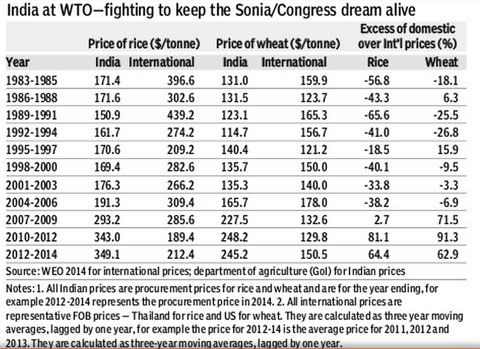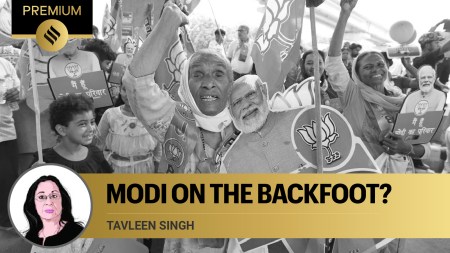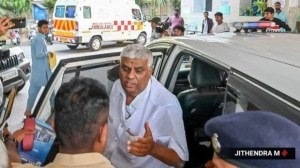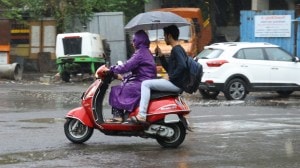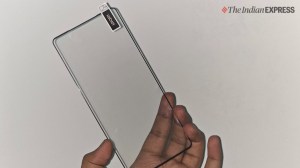- India
- International
A ‘principled’ Congress stance at the WTO?
If India succeeds in stalling talks, Modi will only be endorsing UPA’s very bad food procurement and economic policies .
 Narendra Modi-led BJP government is allowing itself to be captured by Congress-appointed bureaucrats — yet again.
Narendra Modi-led BJP government is allowing itself to be captured by Congress-appointed bureaucrats — yet again.
If India succeeds in stalling talks, Modi will only be endorsing UPA’s very bad food procurement and economic policies.
As is well known and appreciated by now, India has taken yet another principled stand at the World Trade Organisation (WTO). Showing its deep concern for the welfare of the poor, India is threatening to defeat the universally agreed commitment to improving trade facilitation between countries.
No, this is not some banquet, but rather a mundane agreement that will increase the ease of doing business and lower prices for all the world’s consumers. What is this great Indian rope trick? That the WTO should allow India to pursue the Congress and Sonia Gandhi’s dream of the food security act. As shown in the table, this BJP-Indian stance has nothing to do with the food security act or the poor, and everything to do with the bad, bad growth-destroying and inflation-generating policies of the Congress.
Thus, the Narendra Modi-led BJP government is allowing itself to be captured by Congress-appointed bureaucrats — yet again. The first major capture was in the budget speech — universally disliked by all (including chuckle-chuckle, wink-wink, UPA politicians and bureaucrats).
The budget speech, by not emphasising reforms, undermined the authority of the newly elected prime minister, though as I have argued earlier (‘Watch what we do, not what we say’, IE, July 19) this might not be as bad if the BJP introduces reforms and action for which it was overwhelmingly voted in.

Some facts about the WTO case. First, there are precious few countries that are supporting India’s WTO stance. At last count, there were just three countries, well-known for having done wonders for the poor — the venerable states of Bolivia, Cuba and Venezuela. Second, India is attempting to violate the very policy it agreed to in December 2013.
Third, contrary to what many believe, the WTO subsidy agreement is only with regard to production and procurement of agricultural goods, and has precious little to do with consumer subsidies. Fourth, India had already agreed to a resolution of the food subsidy issue by 2017. So why are we demanding that an agreement be reached now? It gets worse.
There is a major flaw in the existing WTO policy on subsidies. The current reference price for the calculation of subsidies is based on an outdated average world price for the three years of 1986-88. One of the desirable and universally accepted WTO policy changes is that the reference world (WTO) price for calculation of the production subsidy be some recent price. All countries (even India and Cuba) want the reference price to be a dynamic price, for example, a moving three-year average. This reference price (RP) is reported in the table as the lagged price (by one year). The domestic procurement price for wheat was $131/ metric tonne in 1985; and the three-year (1982-84) international price was $159.9 per tonne. A final note on RP — if a country is a net exporter, the RP is the fob (free on board) price; if a country is a net importer, the RP is the cif (cost + insurance + freight) price. How does this matter? The gap between the two is approximately 30 per cent, with the cif obviously higher.
Just look at the table in order to understand the folly of the BJP, and the masterstroke by old-era and old-mindset bureaucrats wanting to protect their mistakes (and backside). For 24 years between 1983 and 2006, our procurement price for rice and wheat was well below the fob international price; we had droughts and plentiful rainfall and the PDS food delivery system was well stocked and worked inefficiently and corruptly.
Enter UPA 2 in May 2009, and both rice and wheat procurement prices go well above international prices. In this UPA 2 period, there is bountiful weather, good food production, and just as inefficient and corrupt food distribution. In addition, inflation, especially food inflation, enters a record double-digit level for six years in a row and the RBI begins to worry about entrenched inflation expectations. It keeps interest rates high, thereby making sure that the GDP grows below 5 per cent for the last two years.
Note the irony and the tragedy. The UPA got us into this mess by its irresponsible policies towards a few selected farmers. This mess was voted upon by the Indian population and resulted in the overwhelming rejection of the Congress. Part of this rejection was based on the high levels of consumer price inflation directly engineered and brought about by the large increases in producer prices, both relative to our own and international prices. Modi comes in with a record electoral performance (almost), no matter what the definition of record. The Congress obtains only one-fifth of the seats it obtained in 2009. And now Modi wants to support the UPA’s bad policies?
Can anyone find a redeeming feature in the Modi-BJP stand on food security? The UPA food policy only helped the large farmers in Punjab, Haryana and western Uttar Pradesh. It did not help the poor consumer because she got less than 15 per cent of the food subsidy. So who does the India-Bolivia-Cuba-Venezuela WTO policy protect? Why, none other than the UPA government’s very bad policy of raising wheat and rice procurement prices sky high (don’t believe me — just look at the table again). By supporting the Congress policy at the WTO, the BJP will ensure that the Congress is not held accountable for their rotten food policies. Why?
There is yet another example of imminent bureaucratic capture — this time by both the finance ministry and its comrade-in-arms-and-crime, the securities regulator, Sebi. Amid much fanfare, Jaitley announced in his budget speech that foreign portfolio investors would now be allowed to directly access the Indian stockmarket via India-based managers. This would help the Indian banking and management sectors to grow and provide, through salaries and management fees, much-needed jobs and tax revenue for the government. By definition, this would also entail some revenue loss for leading Indian and foreign investment banks, as they would lose the super-normal profits that they obtain from Indian managers in order to route their investments via Mauritius or Singapore.
Guess what? If well-informed sources are to be believed, the securities regulator Sebi (also known as a supplicant to the ministry of finance, same old Congress appointments?) is about to mandate that an Indian fund manager has to have a prohibitive net worth in order to get a licence to accept foreign money. This graciousness is not for the “poor” foreign investor but for the well-heeled investment banks (foreign and Indian), which know how to protect their turf and profits. Everywhere else in the world big banks are considered bad, especially after the 2008 financial crisis. Except in India, a country whose policies have been dedicated to protecting the rich and exploiting the poor and the middle class.
One had lots of reasons to think that the BJP, and especially Modi, would not subject itself to manipulation by Congress-mindset bureaucrats. We will know by July 31 on both issues — WTO and gifts to a select few investment banks. My bet remains that Modi will act as the people who elected him expect him to act. But August could be another story.
The writer is chairman of Oxus Investments, an emerging market advisory firm, and a senior advisor to Zyfin, a leading financial information company
EXPRESS OPINION
More Explained
May 13: Latest News
- 01
- 02
- 03
- 04
- 05


